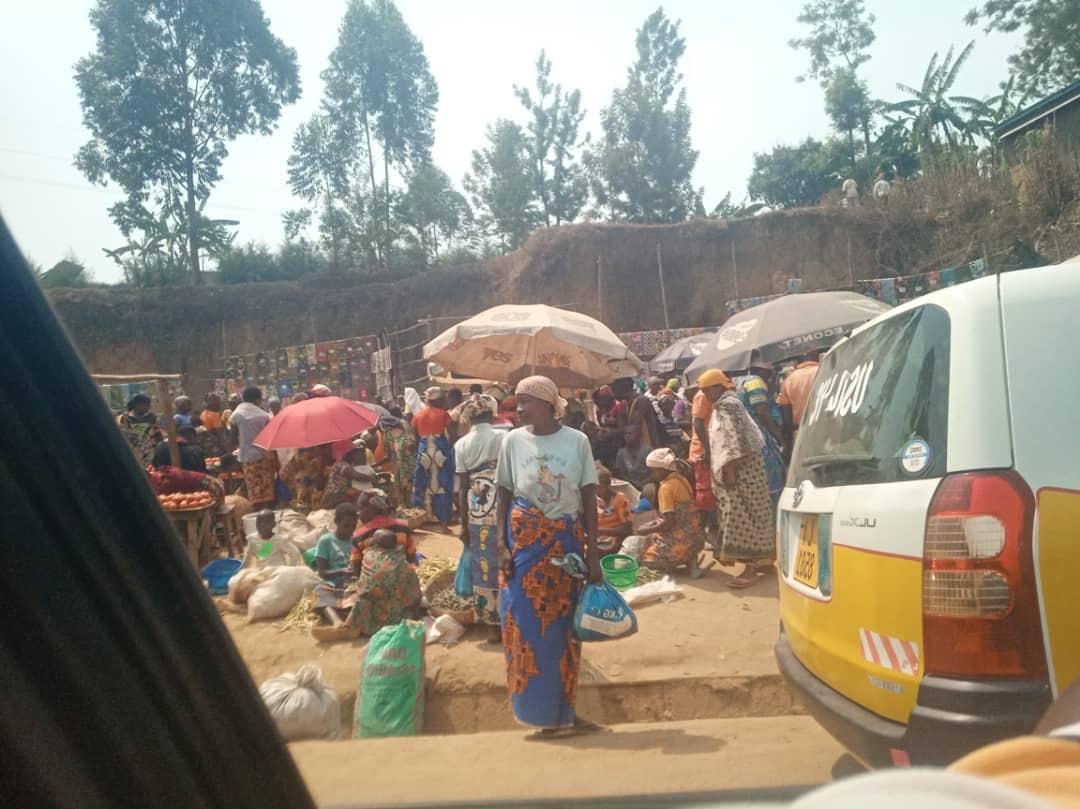Gasarara massacre : harsh verdict in a tense trial

SOS Médias Burundi
Bujumbura, July 8, 2025 – The Bujumbura First Instance Court delivered its verdict on Tuesday, July 8, in the case of the massacre of six people in Gasarara village, Nyabiraba district (western Burundi). Fourteen people were sentenced to life imprisonment, three administration officials to three years in prison, and four defendants were acquitted. While the victims’ families welcome the court’s partial decision, doubts remain about the independence of the Burundian judicial system.
A painful chapter has been partially turned in this case, which was tried in flagrante delicto, barely eight days after the events. The judges of the Bujumbura First Instance Court sat in the town center of Nyabiraba, where the defendants were being held. The harsh verdict, delivered in a tense courtroom, made a lasting impression.
According to the court, the victims—Libérate Bankamwabo, Stéphanie Ndayishuriye, Annonciate Nibizi and her sister Judith, Emmanuel Ngiriyabandi alias Reoba, and Benius Misigaro—were killed in extremely brutal conditions. Some were reportedly poisoned and then publicly burned. One survivor, Euphrasie Ndayavugwa, was injured in the attack and narrowly escaped the carnage.
Heavy sentences, responsibility established
Among those sentenced to life imprisonment were Aloys Hakizimana, Alexandre Ndikumana, Innocent Ndayisenga, Félix Ntirandekura, Kennedy Manirampa, Innocent Ntirampeba, and Jean-Pascal Nahishakiye, found guilty of planning and carrying out the murders. Three other defendants—Daniel Nyandwi, Elysée Ndayikengurukiye, and Samuel Ndihokubwayo—also received life sentences for the murder of the Nibizi sisters.
Aline Kwizera and Égide Ndayishimiye were sentenced to 20 years of penal servitude for complicity in the murders of Ngiriyabandi, Misigaro, and Bankamwabo.
Three local officials—a zone chief, a village chief, and a community leader—were found guilty of failure to assist a person in danger. They were sentenced to three years in prison for failing to fulfill their duty to warn, despite warning signs.
Four other defendants – Mossé Bigirihiriwe, Léonce Mpitabavuma, Éric Nduwimana, and Ferdinand Ntahomvukiye – were acquitted due to insufficient evidence.
Compensation deemed symbolic
The court also ordered the convicted persons to jointly pay 165 million Burundi francs (BIF) to the victims’ families. The sum was distributed as follows :
– 55 million to the families of Annonciate and Judith Nibizi,
– 55 million to those of Stéphanie Ndayishuriye and Libérate Bankamwabo,
– 27.5 million to the family of Benius Misigaro,
– 27.5 million to that of Emmanuel Ngiriyabandi. The survivor, Euphrasie Ndayavugwa, will receive 10 million BIF in compensation for her injuries.
Between relief, doubts, and surveillance
Leaving the hearing, the victims’ relatives expressed relief mixed with caution. « We welcome the court’s decision, but we will remain vigilant regarding the effective execution of these sentences, » said a relative of Libérate Bankamwabo.
Several civil society organizations share this reservation. While they welcome the speed of the trial, they fear a two-tiered justice system. Several of the convicted persons are reportedly affiliated with the Imbonerakure, the youth league of the ruling CNDD-FDD party, which fuels fears of clandestine releases, as in other sensitive cases.
« This verdict must not be a facade. We must ensure that the sentences are actually carried out, without political pressure or partisan intervention, » warned a Burundian human rights defender contacted after the hearing.
A crucial test for Burundian justice
As Burundi faces a tense political period, this case represents a crucial test for the credibility of its judicial institutions. Both the national and international communities will be closely watching to see whether the convicts actually serve their sentences in Bujumbura’s central prison, known as Mpimba.
In Gasarara, the pain remains raw. The bloodshed is still fresh, and the bereaved families hope that this justice, although partial, will mark the beginning of a real change.

